Introduction
The metaverse and digital worlds are evolving at an unprecedented pace, driven by cutting-edge advancements in technology. In 2025, key trends such as AI-powered virtual environments, decentralized ecosystems, and immersive XR (Extended Reality) experiences are set to redefine how we interact, work, and socialize in digital spaces. As businesses and developers push the boundaries of virtual interactions, understanding these trends becomes crucial for staying ahead in this rapidly growing industry.
1. AI-Powered Virtual Assistants and NPCs
Artificial Intelligence (AI) is playing a significant role in making digital spaces more interactive and immersive. AI-driven virtual assistants and Non-Playable Characters (NPCs) are now capable of responding dynamically to user interactions, offering realistic conversational experiences, and even adapting to user behaviour. These AI-powered entities will not only guide users within metaverse environments but also personalize experiences, facilitate transactions, and generate realistic dialogues for storytelling and gaming purposes.
For businesses, AI-powered virtual assistants will improve customer support, automate routine tasks, and enhance user engagement, creating a seamless and intelligent virtual experience.
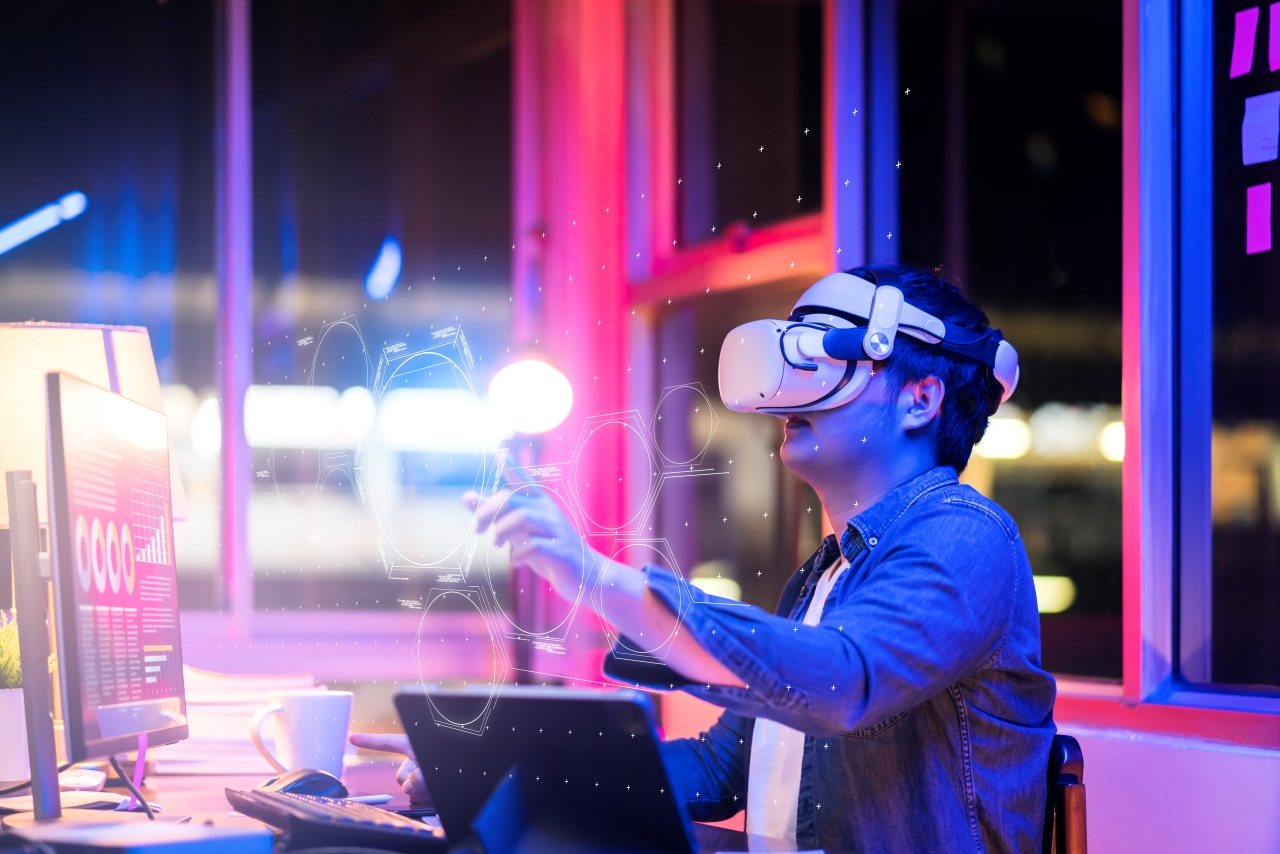
2. Hyper-Realistic Avatars and Digital Identities
The way people represent themselves in the metaverse is changing dramatically. In 2025, hyper-realistic avatars will be powered by advanced AI, deep learning, and motion-capture technologies, allowing for accurate facial expressions, voice modulation, and personalized body language. These lifelike avatars will enhance social interactions, making virtual communication more expressive and engaging.
Moreover, blockchain technology will play a crucial role in securing digital identities, enabling verifiable ownership of avatars, virtual assets, and online personas. Users will have complete control over their digital identity, ensuring authenticity and security in virtual transactions and interactions.
3. Decentralized Metaverse and Web3 Integration
Web3 and blockchain technology are decentralizing the metaverse, shifting control from centralized corporations to users. Non-Fungible Tokens (NFTs) will continue to empower users by providing true ownership of virtual real estate, digital collectibles, and in-game assets.
Smart contracts and Decentralized Autonomous Organizations (DAOs) will allow users to govern metaverse communities, ensuring transparent decision-making and fair economic systems. This decentralization will reduce reliance on traditional corporations and create more user-driven digital economies.
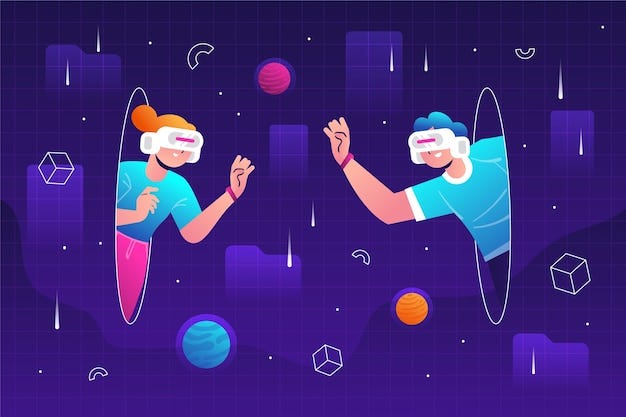
4. Mixed Reality (MR) and Haptic Feedback Innovations
The fusion of Augmented Reality (AR) and Virtual Reality (VR) is leading to the rise of Mixed Reality (MR), where digital and physical elements coexist. Haptic feedback innovations, such as smart gloves, full-body motion tracking suits, and brain-computer interfaces (BCIs), will allow users to physically feel and interact with virtual objects, blurring the line between reality and the metaverse.
These advancements will revolutionize industries such as gaming, education, and remote collaboration, making interactions in digital worlds feel more tangible and lifelike.
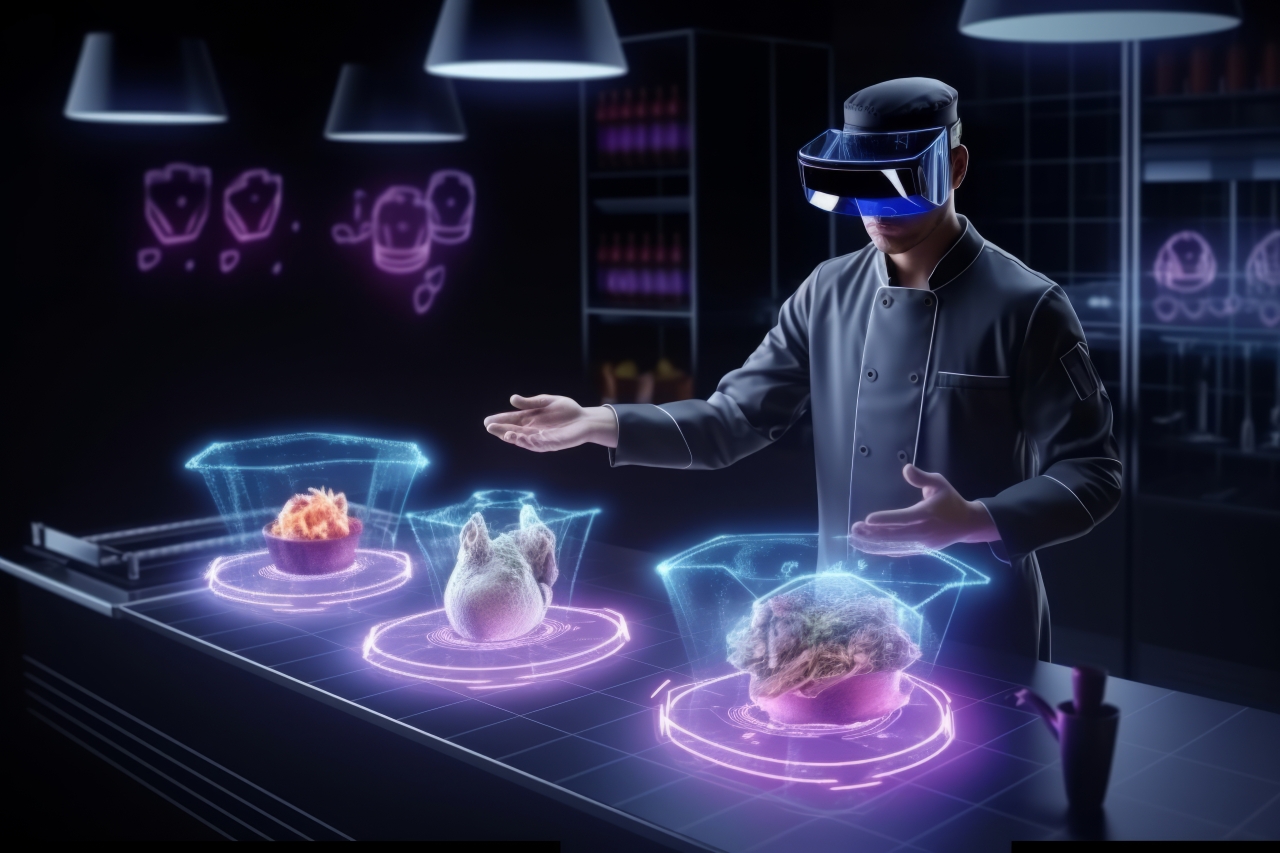
5. AI-Generated Virtual Worlds
AI-powered procedural content generation is set to transform metaverse environments by enabling dynamic and customizable worlds that evolve based on user preferences. AI will automate the creation of landscapes, architecture, and virtual cities, reducing development time and allowing for endless creativity.
This means that rather than relying solely on human designers, AI-driven algorithms will generate immersive digital experiences tailored to individual users, adapting in real-time based on behaviour and interactions.
6. 5G and Edge Computing for Seamless Connectivity
With the continued rollout of 5G technology and edge computing, metaverse experiences will become smoother and more responsive. These technologies will reduce latency, improve real-time interactions, and enable high-quality graphics streaming in virtual spaces.
Gamers, remote workers, and metaverse enthusiasts will benefit from ultra-fast internet speeds, ensuring lag-free, high-resolution experiences. This enhanced connectivity will pave the way for larger-scale multiplayer interactions, immersive VR meetings, and real-time collaboration in digital environments.
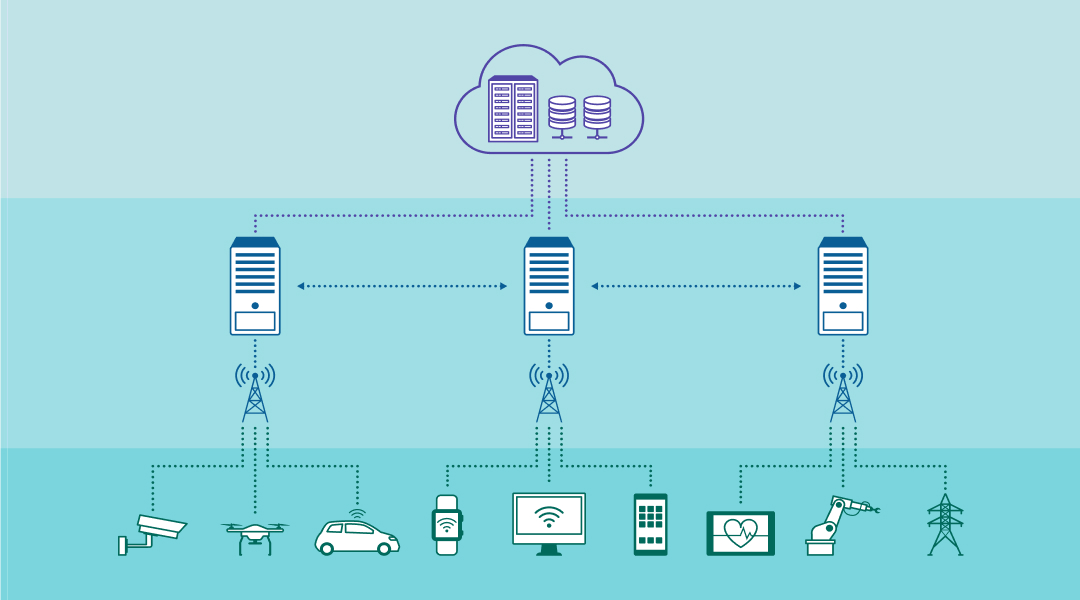
7. Sustainable and Energy-Efficient Metaverse Solutions
As the metaverse expands, concerns about its environmental impact are growing. In response, companies are developing energy-efficient blockchain protocols and optimizing cloud infrastructure to reduce the carbon footprint of digital worlds.
By leveraging eco-friendly data centers, AI-driven optimization techniques, and sustainable blockchain solutions, the industry is moving toward a greener and more sustainable future. These innovations will ensure that the metaverse remains both scalable and environmentally responsible.
8. AI-Driven Content Moderation and Cybersecurity
Ensuring safety in the metaverse is crucial as digital worlds become more interconnected. AI-driven content moderation tools will automatically detect and remove harmful content, prevent cyber threats, and maintain digital community guidelines.
Additionally, cybersecurity advancements will protect users from fraud, identity theft, and data breaches. Encrypted transactions, biometric authentication, and decentralized security measures will enhance user confidence and trust in virtual environments.
9. Virtual Workspaces and AI-Powered Collaboration
The rise of virtual offices and AI-driven collaboration tools is transforming remote work. Companies are leveraging metaverse platforms to create digital twins of their offices, enabling employees to interact in immersive virtual workspaces.
AI-powered meeting assistants will facilitate productivity by summarizing discussions, managing schedules, and even analyzing employee engagement in virtual meetings. This shift will redefine traditional workplace structures and create new opportunities for global collaboration.
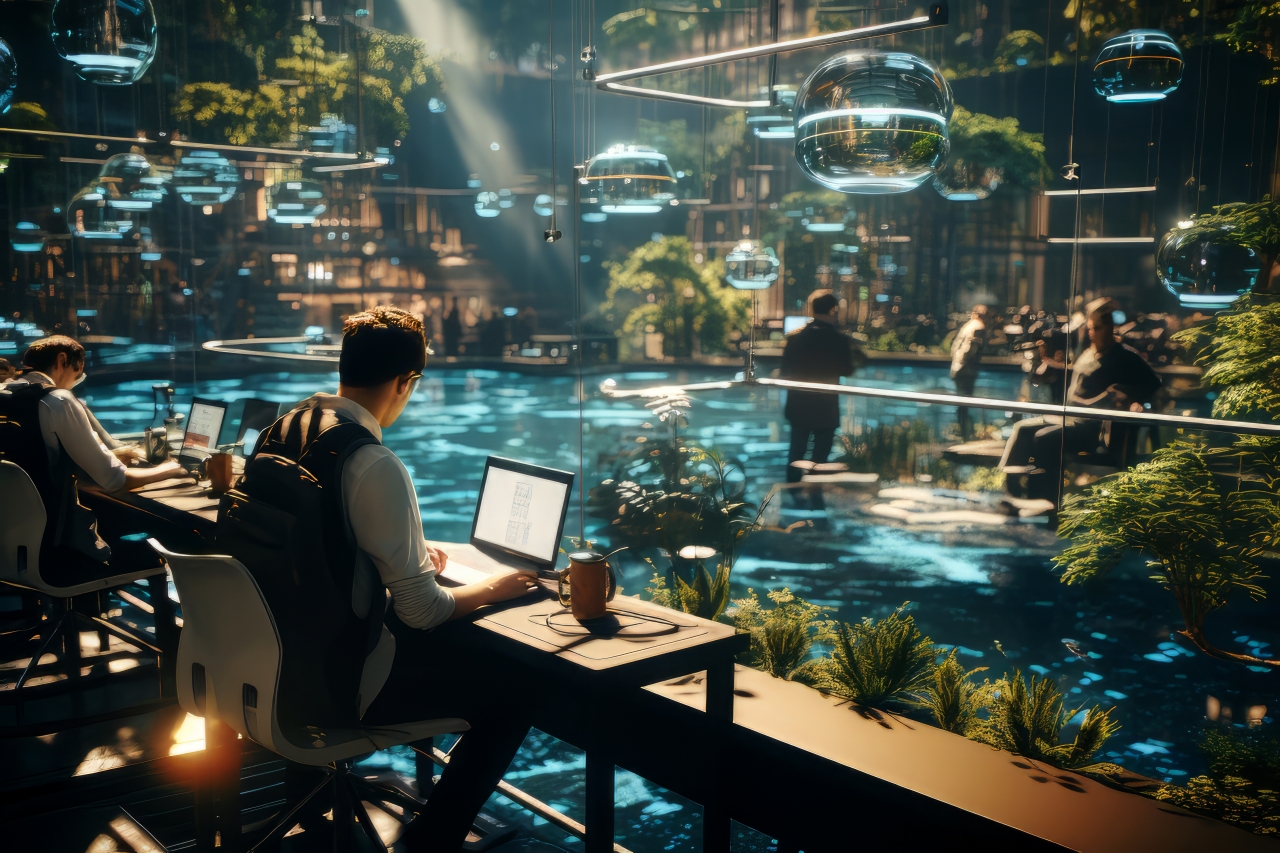
Conclusion
As we move into 2025, the metaverse and digital worlds continue to evolve, driven by advancements in AI, blockchain, spatial computing, and immersive technologies. These innovations are reshaping how we interact, work, and engage in virtual spaces, making digital environments more seamless, secure, and lifelike.
Businesses and developers that embrace these emerging trends will be better positioned to lead in this rapidly growing industry. The future of the metaverse is not just about virtual spaces—it’s about creating interconnected, intelligent, and immersive digital ecosystems that redefine the way we experience the world.
